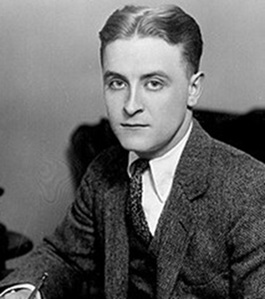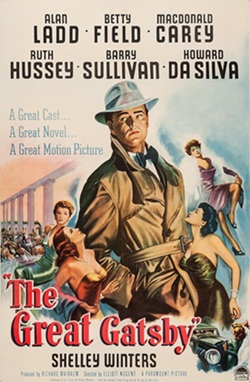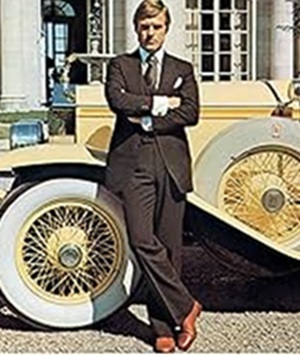On the 100th anniversary of The Great Gatsby .. whatever else Donald Trump is not Jay Gatsby in 2025
Jun 6th, 2025 | By Randall White | Category: In Brief
RANDALL WHITE, NORTH AMERICAN NOTEBOOK, TORONTO. FRIDAY, JUNE 6, 2025. As Andrew Delbanco explains in the May 29, 2025 issue of The New York Review of Books, F. Scott Fitzgerald’s classic American novel The Great Gatsby was “published on April 10, 1925, to good reviews but disappointing sales.”
So the exact 100th anniversary of this now memorable historical event has come and gone almost two months ago. Yet those of us who only knew about the anniversary from Mr. Delbanco’s May 29 review of The Annotated Great Gatsby (James L.W. West III, ed., Amor Towles, intro) may be forgiven for celebrating the centennial almost two months late.
The ultimate judgements about the book offered by Mr. Delbanco, Alexander Hamilton Professor of American Studies at Columbia University in New York, also strike me as compelling. It has “continued to be read as, among many other things, an indictment of Jazz Age decadence” among monied Americans. Fitzgerald “had measureless contempt for ‘careless people’,” like the highborn characters in The Great Gatsby, who “‘smashed up things and creatures and then retreated back into their money…and let other people clean up the mess they had made.’”
In the end, as Andrew Delbanco concludes, “ first and last, The Great Gatsby is a story of unrequited love that invites rereading or even reciting, as poetry does when there’s too much music in the words to be absorbed in a single listening. However counterfeit Gatsby may sometimes seem, there is … ‘something gorgeous about him,’ something ingenuous in his ‘extraordinary gift for hope.’”
As the summer of 2025 looms, even on the northern North American horizon in Canada, it seems almost impossible not to raise the at least remote possibility that Jay Gatsby — a key if congenitally mysterious figure in the book first published on April 10, 1925 — has something to do with the character of the almost 79-year-old Donald Trump 100 years later.
The crux of any serious comparison of this sort would turn around the, as it were, alienation of both men from the New York region high society of their day. The man who ultimately calls himself Jay Gatsby, Andrew Delbanco explains, is “a lowborn midwesterner … taken under wing by Dan Cody, a man of equally inauspicious origin reared in ‘the savage violence of the frontier brothel and saloon’.” Gatsby “eventually makes his own fortune in the bootlegging business,” He “transforms himself into … a putative Oxford man … on the shore of Long Island Sound in a huge faux-Norman chateau, ‘spanking new under a thin beard of raw ivy’.”
The present President Trump was born some two decades later, not in the American midwest but in Queen’s, New York City. He was taken under wing by his father Fred — “a successful real estate developer.” In his mid 20s Donald Trump “took over his father’s real estate company, renaming it the Trump Organization.” From what someone as inexperienced in such matters as I am can judge, the old established high society of New York City has never accepted anyone in the Trump family as one of their own. And at the present height of his worldly success President Donald Trump is based at Mar-a -Lago, on a barrier island in Palm Beach, Florida.
(Even from a more populist angle, in the 2024 US presidential election 68% of New York City voted for Kamala Harris rather than Donald Trump — ranging from 81% in Manhattan to 61% in Queen’s : the only part of New York City that voted for Trump was Staten Island at 64%.)
Beyond sharing some kind of alienation from New York City high society, however, I do not really see much serious similarity between the fictional Jay Gatsby and the all-too-real-world Donald Trump.
No one, for example, would say of the present president of the USA anything quite like Andrew Delbanco’s : “However counterfeit Gatsby may sometimes seem, there is … ‘something gorgeous about him,’ something ingenuous in his ‘extraordinary gift for hope.’” (Though Trump as American president certainly does seem “counterfeit” to me — which is perhaps one other thing he does share with Jay Gatsby.)
Some 100 years after the book’s first publication we know things about the midwesterner Scott Fitzgerald as well that show he himself was in some ways the real model for Jay Gatsby.
Here too none of the women Donald Trump has been involved with seems quite like the “much-pursued Kentucky belle, Daisy Fay, whose voice was ‘a singing compulsion, a whispered Listen’” — the unrequited love of Jay Gatsby, now also living in the New York region, and married to “Tom Buchanan, a rich, stupid, thuggish Chicagoan with a Yale pedigree.” And in the 2020s The Great Gatsby itself is said to have been “inspired by a youthful romance Fitzgerald had with socialite Ginevra King and the riotous parties he attended on Long Island’s North Shore in 1922.”
If there are two people less alike than F. Scott Fitzgerald and Donald Trump I don’t know who they are myself.
(Though the Fitzgerald who “died of alcoholism and heart disease in December 1940,” in his mid 40s, does seem to bear some resemblance to Donald Trump’s older brother Fred Jr., whose “alcoholism … contributed to his fatal heart attack” at the age of 42.)
It would be a wonderful thing, I think, if Donald Trump (or any other president of the USA) actually were in any serious way similar to the “gorgeous” character with an “extraordinary gift for hope,” who Scott Fitzgerald now so memorably created in The Great Gatsby, first published 100 years ago, in the urbane America of the 1920s “Jazz Age,” still held together largely by railroads.
Alas in this as in so many other respects, President Trump in 2025 is a historic disappointment — and (much) worse … .





